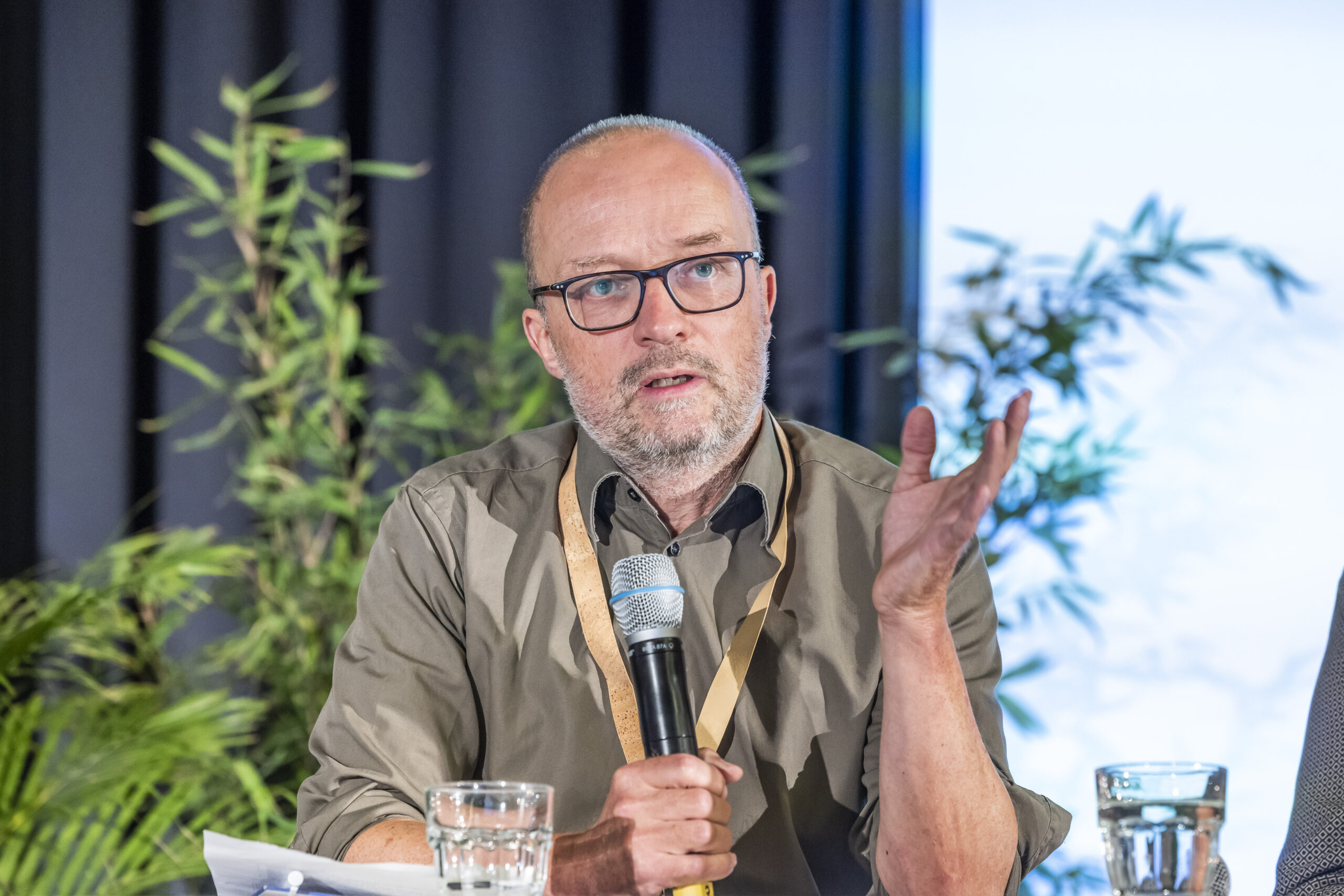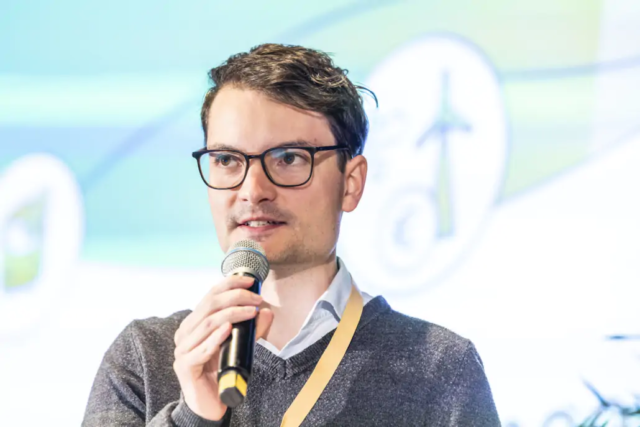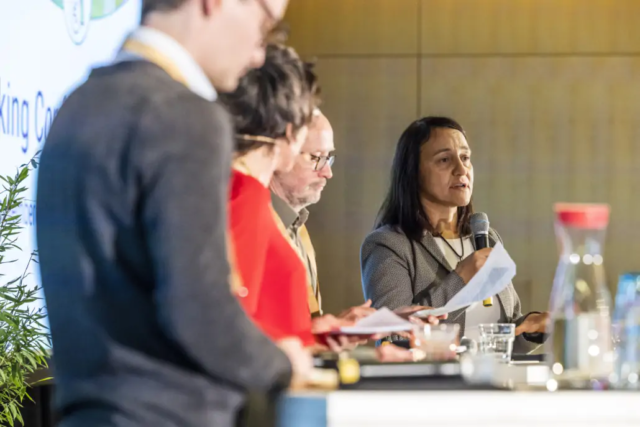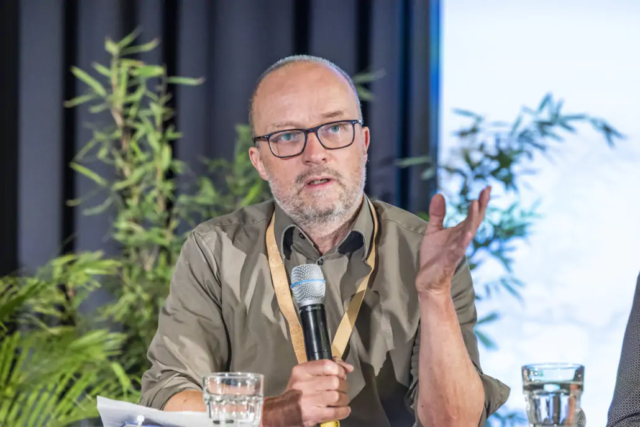“The energy crisis is a turning point”
by Sofia Shabafrouz, GIZ/EUKI
At the 4th EUKI conference, panelists Dr Nils Meyer-Ohlendorf, Anelia Stefanova and Štěpán Vizi discussed current challenges and opportunities for Europe’s energy transition community.
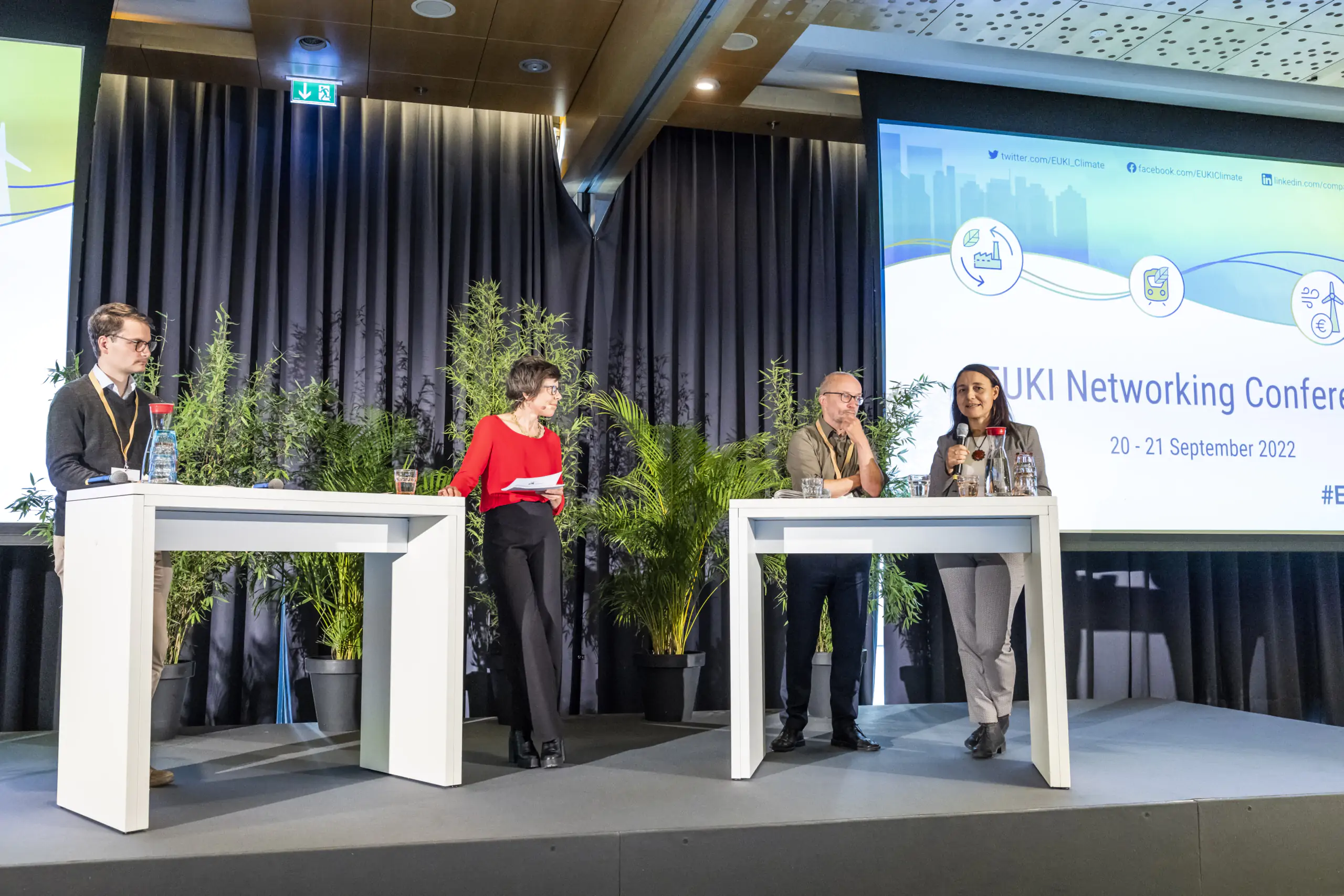
‘Where does the EUKI community stand today?’, was the opening question from moderator Verena Ringler. ‘In Europe,’ answered Dr Nils Meyer-Ohlendorf from the Ecologic Institute. He said that all EUKI projects, implementers and partners were deeply engrained into and highly dependent on EU policy cycles. Additionally, he acknowledged a remarkable unity among EU member states in their response towards Russia’s war against Ukraine. ‘That’s the result of many efforts, and it’s also where I see the EUKI community. We’re managing to have pretty good dialogue between different groups, and this is bearing fruit.’ But despite the unity, Meyer-Ohlendorf also observed that ‘Germany has not been up to speed on Russia, a mistake that is backfiring on the Energiewende.’ He added that tensions were also present in the implementation of the ‘Fit for 55’ package – many within the community had to deal with important technical issues, but some were not on the same page when it came to effort sharing. ‘We need to face these tensions and overcome them,’ stated Meyer-Ohlendorf.
A new stage of transition
Before providing several examples of the now irreversible coal phase-out and transition to renewables in central and eastern European (CEE) countries, Anelia Stefanova from the CEE Bankwatch Network began with some reflection. Her organisation – the largest network of grassroots, environmental and human rights groups in CEE – was one of the first beneficiaries of the EUKI programme when it launched five years ago. ‘We lacked funding for the civil-society and progressive actors to accelerate the energy transition. They needed to raise their voices at a time when most of our regions were seen as the sceptics and troublemakers in the climate discussion,’ recalled Stefanova. According to her, EUKI had been extremely visionary back then in spotting the right gap in the CEE region and had helped create a much-needed community. ‘Without the EUKI funding, we would not be as resilient and prompt in addressing the current energy crisis,’ said the finance expert. ‘The crisis can be considered a turning point, an opportunity bringing us to a new stage of transition.’ For Stefanova, this was a moment to rethink past dependencies and strategies; Europe was coming together, showing a great deal of solidarity with funding measures like the Just Transition Fund and post-COVID recovery funds.
No energy security without the energy transition
But how does the energy crisis affect the transition? ‘There is a risk of energy security being used as an excuse to push for more fossil infrastructure to get us through these current times,’ argued Štěpán Vizi from the Centre for Transport and Energy (CDE) in Prague. ‘We need to change the way we think and talk about energy security. The old mentality of securing enough fossil fuel supplies is outdated,’ he said. ‘This requires a lot of work within civil society, which is where EUKI can be very beneficial.’ Vizi also emphasised the importance of social aspects and including the public in the energy transition: ‘We need to bring the people on board and make it work for them.’
Saving on energy, but not effort
The animated discussion continued, stressing the importance of active dialogue, experience-sharing and cooperation between all players at local, national and European level. These stakeholders should include think tanks, universities, sustainable businesses, civil society, citizens and the media, and also involve more conservative groups. According to Stefanova, when it comes to future crises like the resource crisis and the biodiversity crisis, ‘there’s no time to lose.’ ‘We must get faster at learning and sharing what’s working in different places. We need to save on energy, but not effort.’


